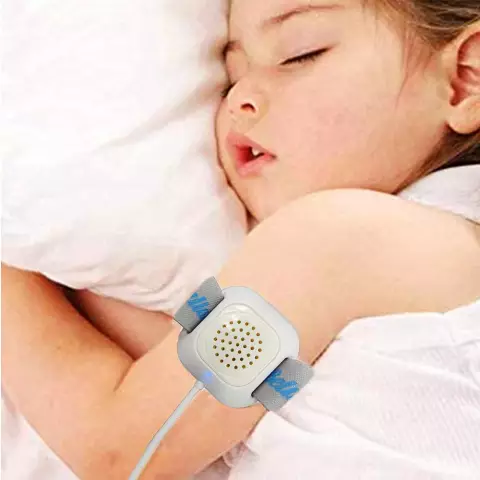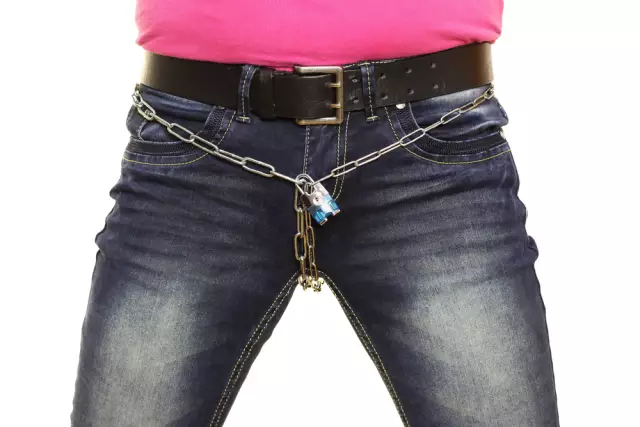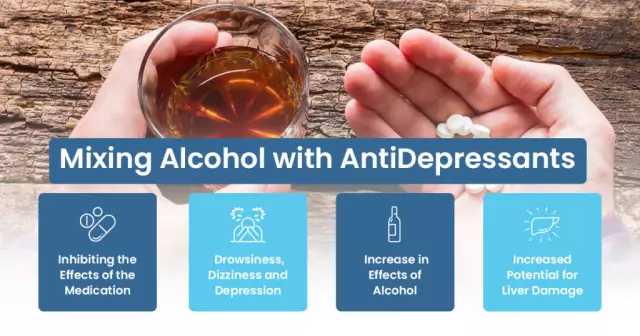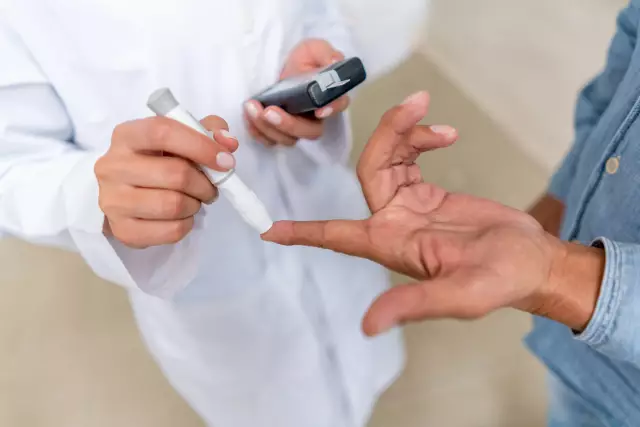- Author Rachel Wainwright wainwright@abchealthonline.com.
- Public 2023-12-15 07:39.
- Last modified 2025-11-02 20:14.
Childhood enuresis: at what age should you sound the alarm?
All parents are ready for the baby to pee often and a lot. Since the introduction of absorbent diapers, keeping your baby dry and comfortable is no problem. But if a grown-up child continues to urinate in his pants, parents feel anxiety: is everything all right? Let's try to figure out what infantile enuresis is, why it occurs and at what age the child should start treatment for it.

Source: depositphotos.com
Doctors have a clear opinion: the diagnosis of enuresis is made if the child's urinary incontinence persists after 5 years. The term itself comes from the Greek word enureo - to urinate. It is necessary to distinguish between day and night enuresis: in the first case, the child cannot control urination during the day, in the second - at night. Daytime urinary incontinence is relatively rare, but nocturnal incontinence occurs in 14% of 5-year-old children, 7% of 7-year-olds and 2% of adolescents at the age of 14. Every fourth family with a child under the age of 5 is faced with the problem of “wet sheets”. The statistics are quite alarming.
Why does enuresis occur?
The causes of its occurrence can be malformations, diseases of the genitourinary system, various infections suffered by the child. But in the overwhelming majority of cases, enuresis appears due to the immaturity of the child's central nervous system: the signal about the overflow of the bladder and the need to empty it simply does not go to the brain.
The diagnosis is made after 5 years, since it is by this age that the formation of the urination reflex ends. There are several forms of enuresis:
- simple - involuntary urination in the deep sleep phase;
- neurotic - its manifestations depend on the psychological state of the child;
- epileptic is urinary incontinence during seizures;
- endocrinopathic - occurs with various diseases of the endocrine system, such as diabetes or obesity;
- dysplastic - may also be accompanied by fecal incontinence and is a consequence of organic disorders of the urinary system.
Each form has its own characteristics and manifestations. Accordingly, treatment is prescribed for the child taking into account the causes of enuresis. The simple form is often hereditary. Moreover, psychologically, the child is easier to endure enuresis, if the parents do not scold for it.
Do I have to wait up to 5 years to see a doctor?
The problem of urinary incontinence is very serious - after all, few children do not attend kindergartens until the age of 5. It is not difficult for parents to use diapers when traveling or walking with a child, but in kindergarten, ridicule and comments from peers and educators can await him. Meanwhile, stress is a factor that provokes enuresis.
Therefore, it is imperative to consult a doctor as soon as the parents notice that the baby wakes up too often in a wet bed. If we are talking about the age of 3-4 years, then such episodes can happen no more than 1 time in 3 weeks. An examination is mandatory if the baby is older than 1.5-2 years old was already accustomed to the regime and controlled himself, but suddenly he began to write again in his pants and bed. The examination will exclude the presence of pathologies and infections of the genitourinary system.
Is there a link between potty training and enuresis?
Many mothers believe that the child should be potty trained as early as possible. Unfortunately, modern research proves that this is not only ineffective, but also quite dangerous for an immature child's psyche. Each baby develops individually, forced potty training only does harm.
American experts, based on observations of a group of children aged 3 to 10 years, made the following conclusions: the optimal age for potty training is from 2 to 3 years. Too early or, conversely, late training increases the risk of developing bedwetting. For example, daytime enuresis was recorded in 60% of “early” babies and 70% of “late” ones. The conclusions are clear.
Treatment methods for bedwetting
Which specialist should I contact? You need to start with a visit to the pediatrician, who, if necessary, will refer the child for a consultation with a urologist and a pediatric neurologist. Accordingly, the treatment regimen will depend on the causes of enuresis. There are quite a few ways to treat this disease, including medication. The most commonly used hormones ("Adiuretin SD"), psychostimulants, antidepressants. All appointments should be carried out only by a doctor!
In addition to drug treatment, physiotherapy, acupuncture and herbal medicine are widely used. The psychological attitude of the child and the parents and their adherence to a number of simple rules is of great importance.

Source: depositphotos.com
First of all, you should never be scolded for an oversight with a pot. Oddly enough, many parents do not fulfill this requirement, only aggravating the psychological discomfort of the baby. The child should know that such a problem occurs not only with him, otherwise he may begin to hide that he described himself.
It is necessary to observe a clear daily routine and put the child to bed at the same time, making sure that he goes to the toilet before going to bed. 2-3 hours before bedtime, you need to limit the child's fluid intake. Before going to bed, it is better to avoid increased emotional stress, including active games. If the child is afraid of the dark, you should turn on his night light.
To wake up or not to wake up a child at night? The opinions of doctors on this matter are different, but if parents seek to avoid nighttime blemishes, then the child should be placed on the potty not half asleep, but completely awakened.
Children over 3 years old do not need to wear diapers at night, even if the parents are so calmer - this will only slow down the formation of the reflex of correct urination.
Children of preschool and primary school age can engage in auto-training, as well as do an exercise that strengthens the sphincter of the urethra: during urination, try to interrupt it for a short time. If your child feels pain during exercise, be sure to tell your doctor about it.
Children's enuresis is successfully treated today. And we wish you and your child health and patience!
YouTube video related to the article:

Maria Kulkes Medical journalist About the author
Education: First Moscow State Medical University named after I. M. Sechenov, specialty "General Medicine".
Found a mistake in the text? Select it and press Ctrl + Enter.






